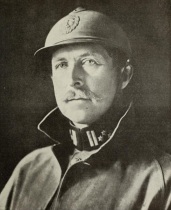Well now – some news! After nearly a decade of working alone on this passion of mine which is the ‘Belgian Colony’ of Tunbridge Wells, I am now collaborating with academics from the University of Kent and University College London, and volunteers from local arts & education umbrella group Camden Road Education, Arts and Theatre Enterprise (CREATE to you and me) on a project to Discover the Belgian Community in Tunbridge Wells 1914-1918 which has recevied funding from the Arts and Humanities Council (AHRC) through Gateways to the First World War Very, very exciting!
I shall continue to add to this blog, and also my Twitter (see feed on this page) and Facebook pages, but will also be contributing to the project’s own blog which has just gone live this very day and is Royal Tunbridge Wells Belgian Refugees 1914-1919
The project will use a variety of historical sources to reveal the largely forgotten history of the Belgian community in Tunbridge Wells, Kent and surrounding areas during the First World War…, the ‘colony’ that they built, and their interactions with the host community.
Volunteers will utilise digital and archival resources to make posts to [the project’s] blog about the refugees and their hosts and to produce a local Belgian Community Heritage Trail, which will be available to local people, school students and visitors to use free of charge by the end of July 2017. It is intended that versions of the Heritage Trail will be available not only in English but also (through this blog) in Belgium’s official languages, Dutch, French, and German.
from the Introduction to the Project by Dr Anne Logan, University of Kent
So, we’re looking for volunteers to research (or help with research), to write blog posts, to help with admin, to liaise with local organisations such as school, churches and the press, to take photos of local places associated with the refugees – and these are just a few off the top of my head.
There will be twice-monthly Drop-in Sessions for volunteers to which all are welcome, and the first one is on Saturday 11th February 12.30-13.30pm at the Camden Centre in Tunbridge Wells (see [1] below for future dates).
You’ll be able to meet the project leaders, Dr Anne Logan and Dr Kate Bradley from the University of Kent, and Dr Christophe Declercq from University College London, as well as other volunteers (and yours truly of course), and find out more about the project and how you can be involved, as well as compare notes on research currently underway.
Join us! For more information you can get in touch with me via my contact page or email the project leaders on RTWBelgians1914@kent.ac.uk
We look forward to hearing from you!
Alion Sandford MacKenzie
P.S. Alongside the funded research project, I’m cooking up some Anglo-Belgian Friendship Events, in particular over the weekend of 21st-23rd July (21st July being Belgian National Day of course). On the drawing board so far are a choral concert (to include music composed by one of Tunbridge Wells’s wartime guests), an impro exchange between Claquers Impro of Tunbridge Wells and Improfiel from Leuven, a cricket match, a tree-planting, perhaps a Picnic at Eridge Rocks (which is how the Belgian community celebrated their national day in 1917)… Other ideas are floating about involving Belgian food, music, literature, art….
If you have one (an idea that is), or would like to be involved in this side of things, please get in touch via my contact page. Thank you.
Important note : this strand has no funding, so events will need to fund themselves, or maybe we’ll get going with some crowd-funding…
[1] Volunteer Open Meetings (3rd Tuesday and 1st Saturday of the month), all at the Camden Centre: Tuesday 16th May 6.30-7.30pm, Saturday 3rd June 12,30-1.30pm, Tuesday 18th June 6.30-7.30pm, Saturday 1st July 12.30-1.30pm, Tuesday 18th July 6.30-7.30pm
Find out more by joining our Facebook Group RTW Belgians 1914





